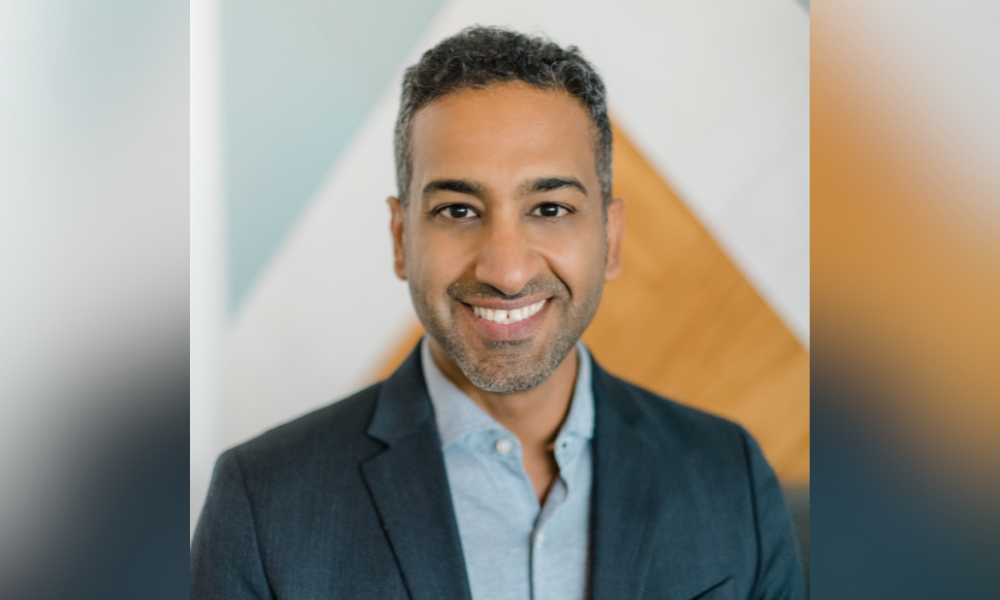Expert discusses Trump's impact on Canadian workplaces, and why DEI programs fail

The diversity, equity and inclusion (DEI) landscape is at a crossroads amid political and social changes, according to one expert.
"It’s a very critical time for DEI,” says Wyle Baoween, CEO and founder of Inclusivity, in talking with Canadian HR Reporter.
“With the changes in the U.S., President [Donald] Trump, and all the mandates and messages and the new ideology in the White House, it really presented a very different perspective for DEI these days."
These changes are affecting how employers are handling the issue of DEI in the workplace, he says.
“A lot of organizations are doubling down. They're thinking, ‘This is really important.’ A lot of people are pausing and reflecting [on] what worked, what didn't work. A lot of people want it to be more sustainable, versus in the past [when] it seems like many of them were just doing it because everyone is doing it.”
Trump has been vocal about his negative view of DEI, even blaming diversity efforts for a recent plane crash that killed 67 people.
Meanwhile, a previous report noted that while there has been some backlash against DEI, most U.S. workers remain committed to their diversity goals.
How does Trump impact DEI Canadian workplaces?
Trump’s anti-DEI actions also impact Canadian workplaces, says Baoween.
While there has always been a divide between those who fully support DEI and those who oppose it, recent political developments have emboldened employees who reject these initiatives, he says.
"The resistance was quiet, but now Trump came and it surfaced. I think it really empowered those people to say, ‘No, I reject this. I don’t want it. I think it’s a waste of time,’" he says.
In previous surveys conducted by Inclusivity, seven to eight per cent of Canadian employees reported being opposed to DEI initiatives, says Baoween. However, he now sees a rise in vocal opposition, with more employees openly expressing their objections.
A previous report released prior to Trump being elected US president once more noted that there was rampant discrimination against Black and racialized employees at Canada’s Privy Council Office (PCO).
Why do DEI efforts fail?
However, even before Trump re-assumed office, there has been limited progress achieved through employers’ DEI efforts, says Baoween.
Baoween cites data indicating that since 2020, women's representation in leadership has increased by just 1.5 per cent, while the wage gap remains largely unchanged.
“Many initiatives were ineffective because they weren't tied to the business strategy. They're just initiatives… There's a lot of performative efforts, poor execution which leads to skepticism and resistance from the employees.
“I've seen organizations [that] have all these beautiful commitment posts on their website, but you go inside and nothing really is changing. The leadership looks exactly the same. The culture looks exactly the same.”
Lack of business acumen in DEI leadership
A major issue, according to Baoween, is that many DEI efforts have been led by employees without expertise in change management, cultural transformation, and data analysis.
"If you want to change a culture, you need to be an expert in cultural change, change management, metrics, data," he says. "Unfortunately, many organisations did not invest in this kind of experience and expertise."
Rather than hiring specialists, some companies assigned DEI responsibilities to diverse employees from other departments, such as marketing, HR, or operations.
"These employees are experts in their own work, but they’re not really experts in cultural change and metrics and data," Baoween says.
DEI language creates confusion
Another thing that hinders DEI progress is the confusion arising from the different languages being put into the initiative, says Baoween.
“The language has become unnecessarily complicated and contentious… There is a group of people who over intellectualize the whole conversation. The acronyms became difficult, they used specific words, which made it really inaccessible for people.”
He believes that employers should focus on “simple, people-oriented language”.
And no matter the language, DEI boils down to one thing: “fairness,” says Baoween.
“If you are fair, you will have inclusive practices. If you have inclusive practices, you will have more diversity. And if you have more diversity, especially at the top, you will have more equity and more, you know, fair distribution of pay and everything. It all comes back to fairness.”
For employers looking to refine their DEI strategies in 2025 and beyond, Baoween advises aligning DEI initiatives with core company values and integrating them into business strategy.




